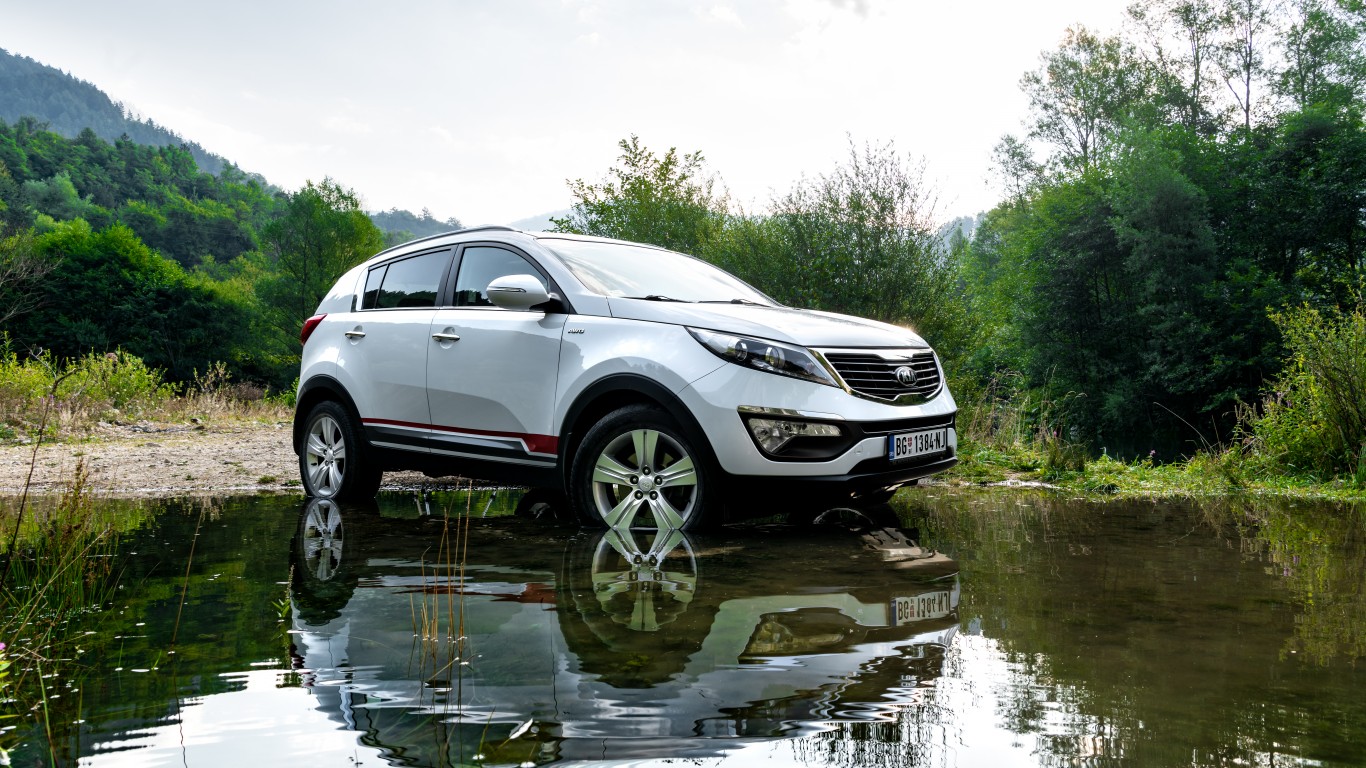
First released in 1993, the Kia Sportage is already in its fifth generation as a compact SUV built alongside the Hyundai Tucson. After passing the Kia Rio in 2016, the Kia Sportage is now the brand’s best-selling vehicle and a frequent “Car of the Year” award winner. Positioned between the Niro and the Sorenton, the Kia Sportage is a fantastic choice for buyers looking for a relatively inexpensive compact SUV that doesn’t compromise features and safety.
However, strong sales and a friendly price tag don’t mean the Kia Sportage is perfect. As with every vehicle on the market, the Kia Sportage has had some great and not-so-great years. Between suspension troubles, cooling system failures, and faulty airbags, there are some model years you want to avoid, according to websites like CarComplaints, CoPilot, and Consumer Reports. With this in mind, let’s look at five model years you want to avoid and five you want to own.
Avoid: 2001
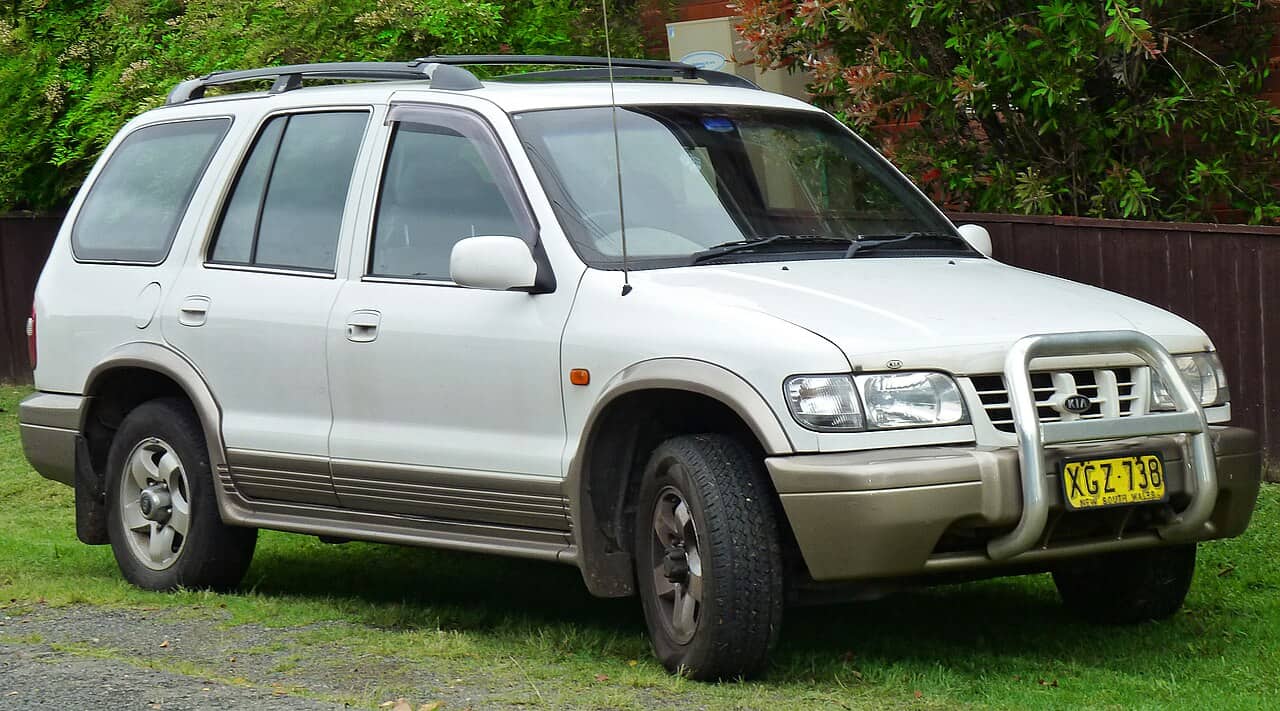
With around 350 NHTSA (National Highway Transportation & Safety Administration) complaints filed in 2001, it’s near the top of the list for model years to avoid with the Kia Sportage. At the top of the concern list this year is the engine, which suffers multiple issues with engine cooling. A total of 44 NHTSA complaints were specifically filed around engine concerns, and no recall was ever issued to address any of them.
Unfortunately, engine issues were not the only concern in 2001, as fuel system problems were also prominent. At the top of this list was a strong gas smell after filling up a tank. It would later be identified as a leak, but at the time, strong gas fumes caused a literal headache for drivers, as too much of this odor can be harmful.
Avoid: 2012
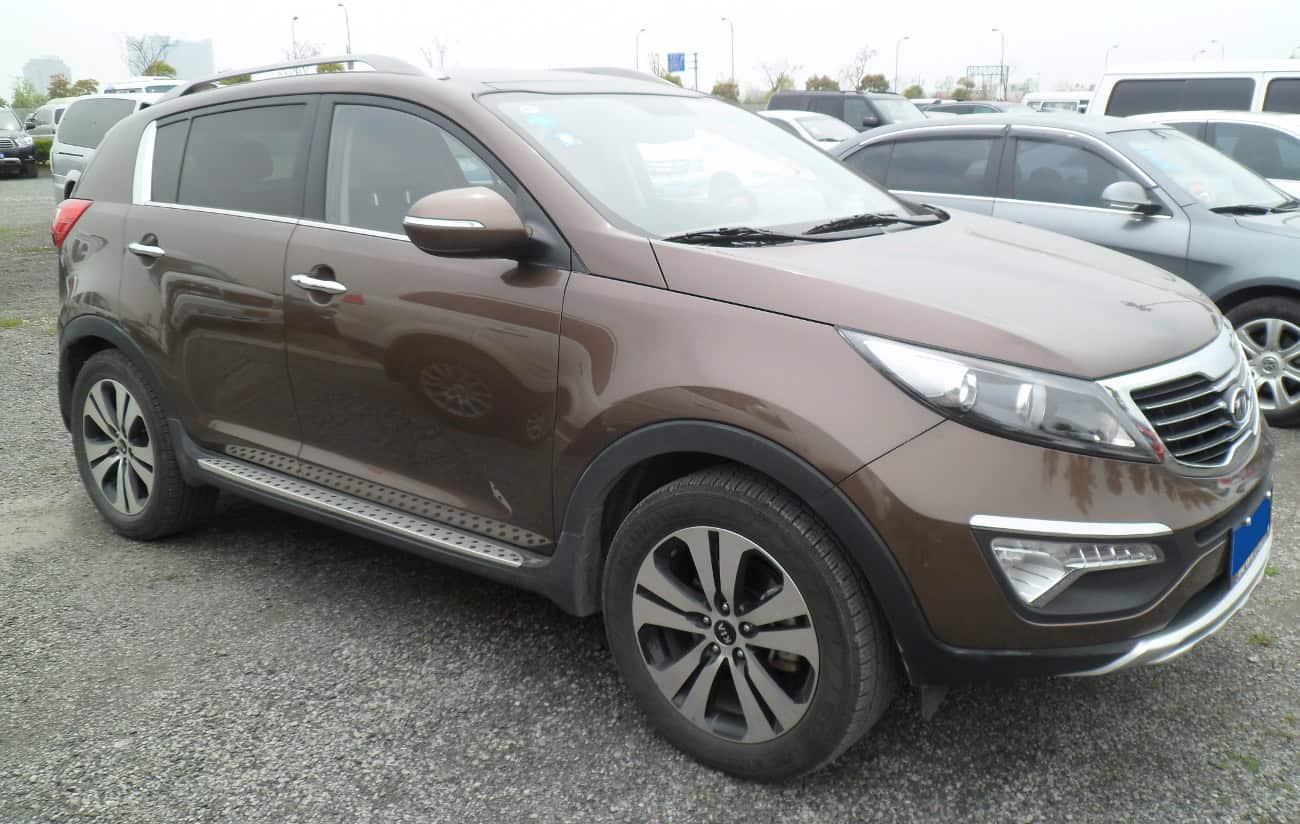
Fast-forward to 2012, and the Kia Sportage has seen some better years since 2001, but 2012 changed everything. Of the 413 total NHTSA complaints filed, 313 were related to engine issues. It’s widely believed this issue was the worst the Kia Sportage ever suffered, making it the worst model year for the vehicle since it was released. While driving, customer complaints came in fast and furious, ranging from a blown engine to a knocking sound, and Sportage owners were understandably unhappy.
Thankfully, at least three recalls related to engine problems were issued, but they wouldn’t be addressed until 2017. Unfortunately, engine issues were not the only challenge with the Sportage, as electrical issues also bubbled to the surface. However, the issues were not singular, as some customers complained about power windows while others focused on errant low tire pressure warning lights.
Avoid: 2013
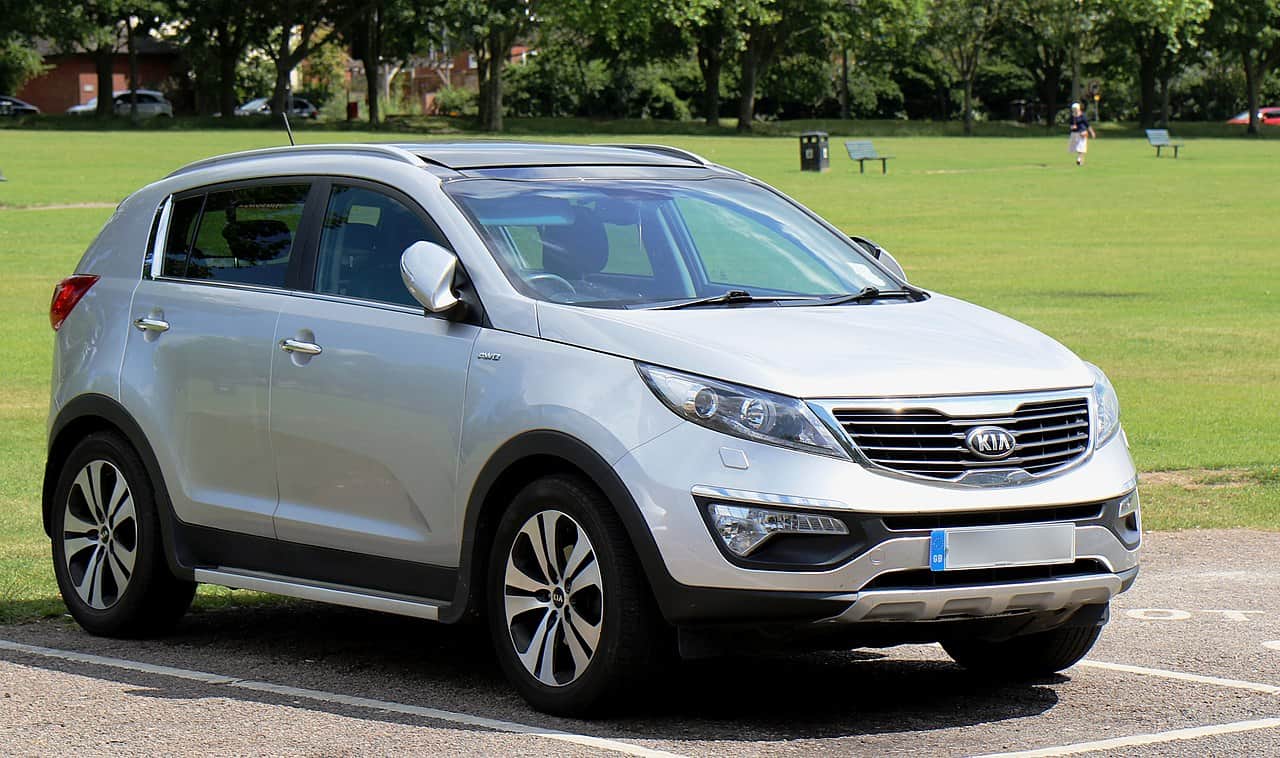
While 2013 wasn’t as bad as 2012, it was still a year Kia would rather forget in the Sportage’s history. Still, 282 NHTSA complaints related to engine issues are not to be ignored, especially when there were only 370 total complaints. This means 76% of every NHTSA complaint in 2013 was related to the engine in one form or another. In other words, just avoid the 2013 model year entirely. Once again, the issues were not singular either, as some customers reported engines stalling and/or dying while driving, while others indicated smoke would suddenly appear from the engine.
If engine issues were not enough to convince you to avoid the Sportage in 2013, Consumer Reports offered a brutal review. Calling the Sportage “below average” with fuel economy, the CR review noted poor rear visibility, slow acceleration, too much road noise, and no blind spot monitoring. Just ignore 2013 altogether.
Avoid: 2014
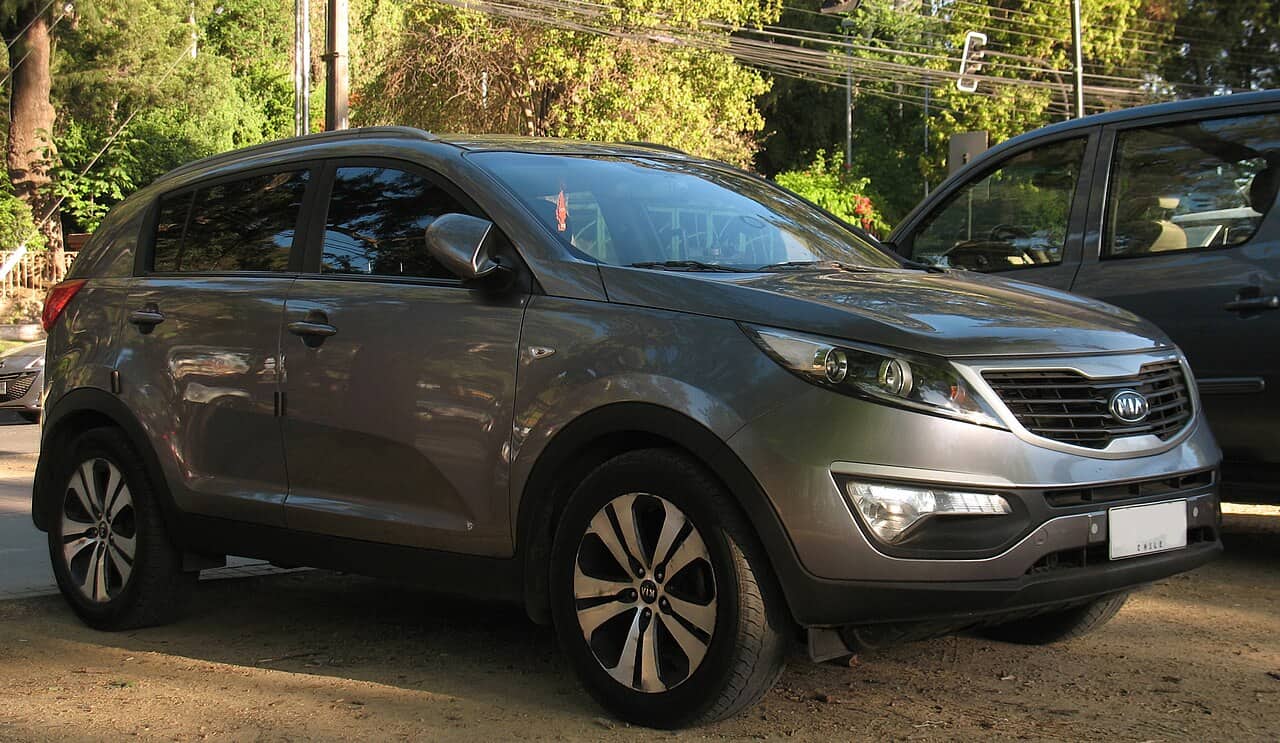
In 2014, things improved regarding the engine issues plaguing the Kia Sportage over the last two years. There was a notable drop in engine-based NHTSA complaints, with only 51 being submitted in 2014 by Sportage owners. Out of 111 NHTSA complaints, this made for less of a concern for potential Sportage owners this year, but it’s still a year worth avoiding overall. Engine issues cannot be ignored, and this year, the issues focused on the engine stalling while driving, which is incredibly dangerous.
Along with engine concerns, there were also braking issues, to the tune of 22 individual NHTSA complaints. The biggest flag was that customers received a recall notification based on an NHTSA campaign. However, Sportage owners indicated that dealerships had not properly fixed the issue.
Avoid: 2017
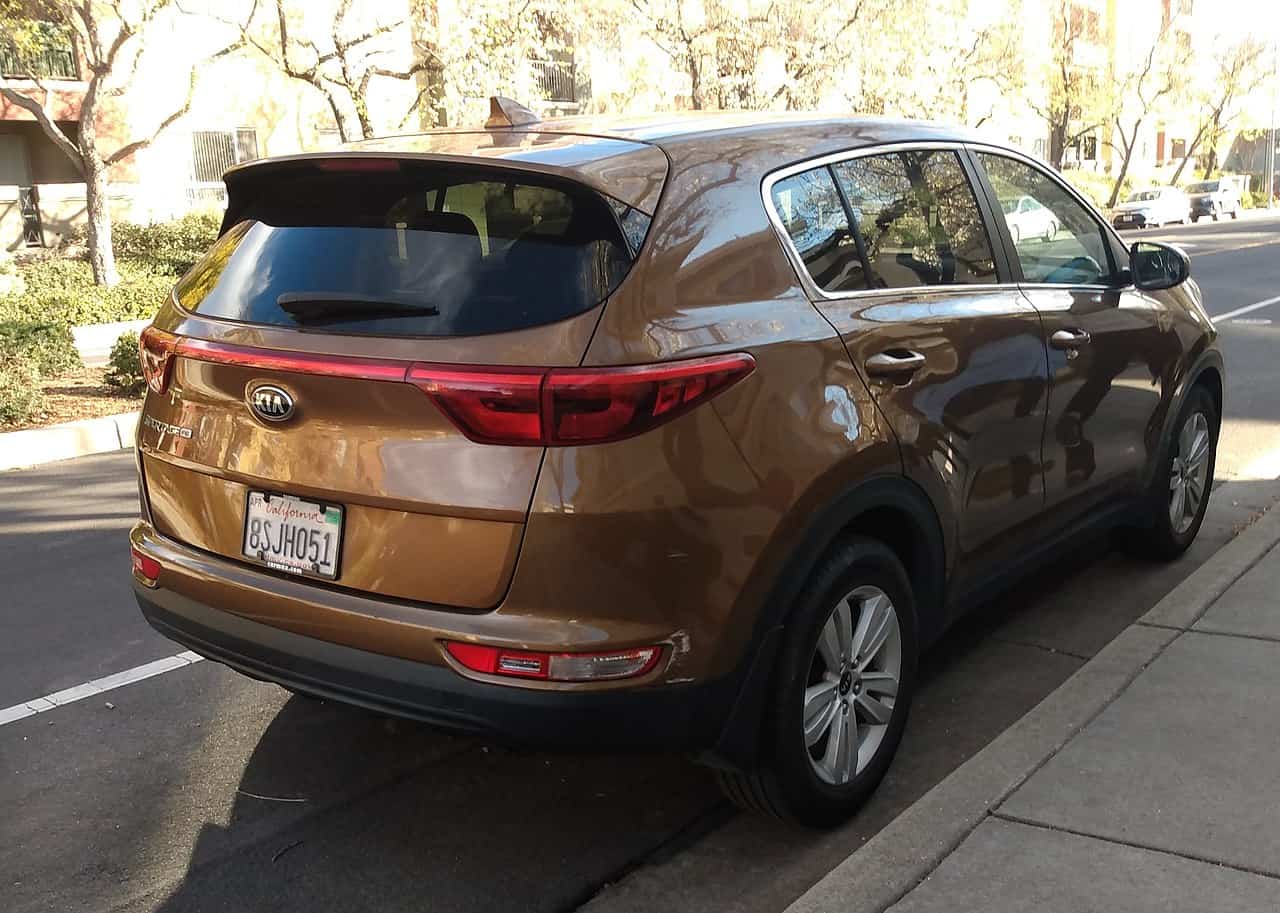
If it seemed like the Kia Sportage was turning things around with engine complaints, NHTSA complaints resurfaced almost immediately around the engine. While the Sportage did get a redesign in 2017 that customers welcomed, engine issues were the most memorable part of the 2017 Sportage model year. When the Sportage hit 90,000 miles, it was a roll of the dice whether the engine would survive any longer. If it did fail, you were looking at around $5,000 plus to fix.
When you add engine issues with excessive oil consumption, the problem and associated costs keep increasing. Unsurprisingly, there were 401 total NHTSA complaints in 2017, and all signs point to plenty of driver headaches. It was also disappointing to see the Sportage hold at 23 MPG overall and come with a disappointingly small 5-inch infotainment screen.
Own: 2005
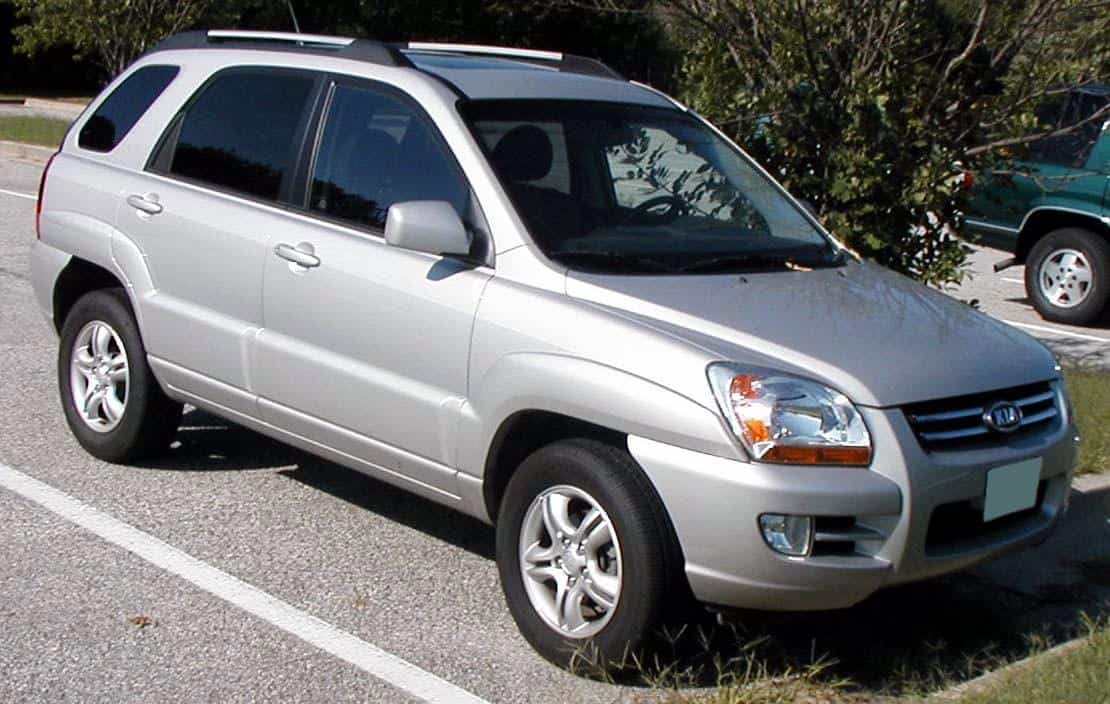
To find the first Sportage year worth buying, you must return to 2005. With only 90 NHTSA complaints filed, it’s an easy recommendation to pick up if you can find one reasonably priced. There are no major issues to report besides a few complaints about airbag warning lights. The airbags themselves functioned okay, but it was reasonable to be worried if an airbag warning light suddenly appeared.
As part of the second-generation Kia Sportage, 2005 saw the Sportage include ABS and traction control to emphasize vehicle safety better. Keyless entry and a better sound system were also introduced to make the Kia Sportage a more attractive option in its category. The Sportage also received five stars from NHTSA’s 5-star crash test.
Own: 2010
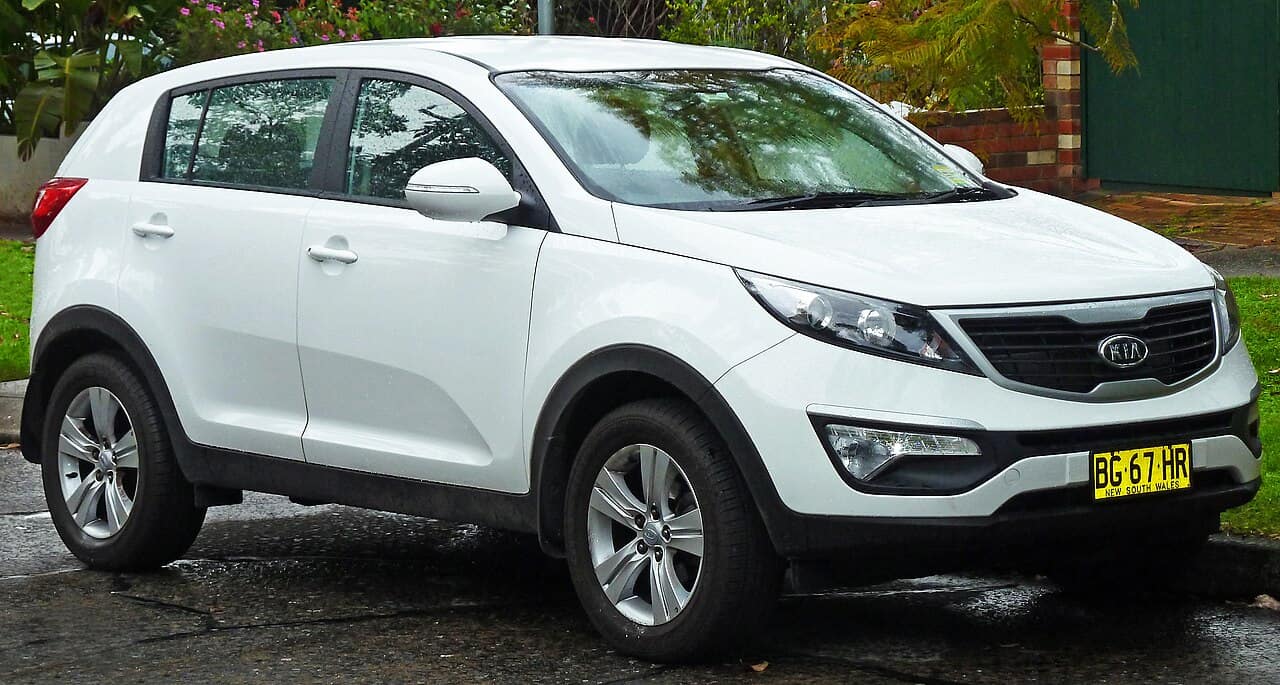
Jumping ahead to 2010, you’re looking at one of the best Kia Sportage model years. Only 18 NHTSA complaints were filed this year, and as they were spread around different issues, there was no single main problem with the Sportage in 2010. The good news continues, with Sportage receiving five stars in all of NHTSA’s safety tests and four stars in its rollover test. This should give 2010 buyers plenty of confidence the Sportage is ready for the road.
If you look at J.D. Power for the 2010 Kia Sportage, it issued the vehicle a ” Great ” score for driving experience, which is not an easy award to win. Consumer Reports were equally positive, offering positive remarks on the roomy interior, quiet ride, and handling that feels good to control while driving.
Own: 2019
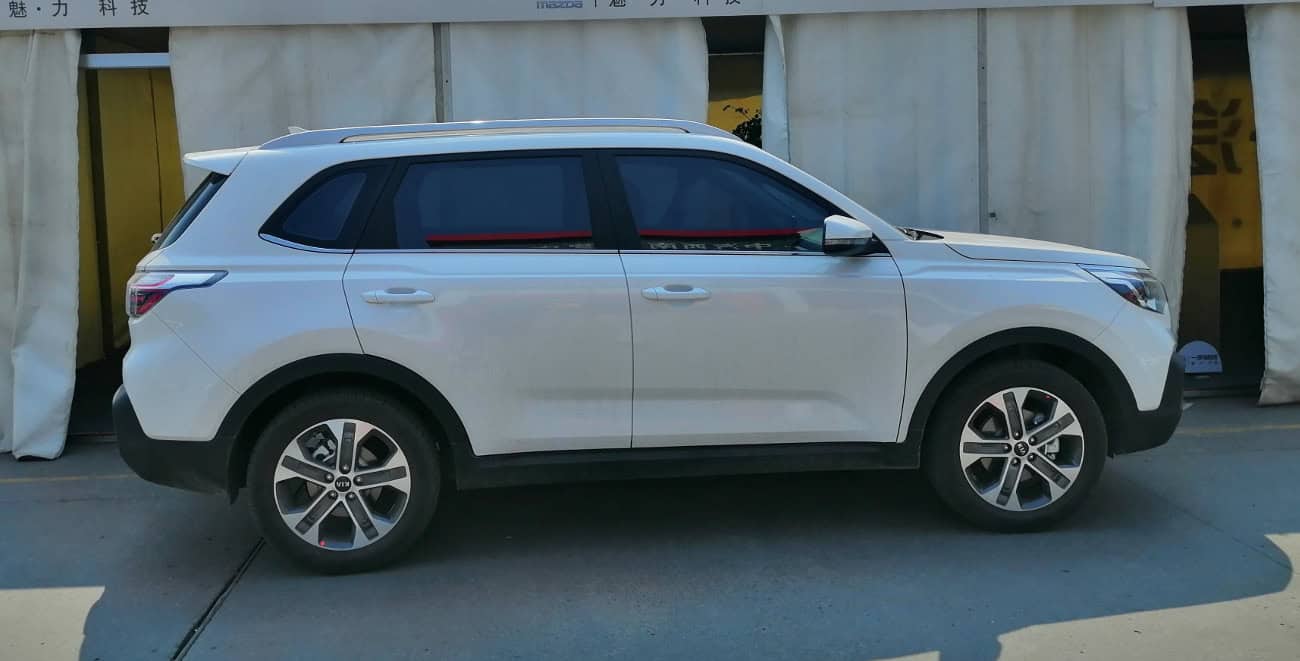
When you jump ahead almost a decade, you have the right expectations that the Kia Sportage will see vast improvements. While 2019 wasn’t by any means a perfect year, with 43 NHTSA complaints filed, it’s pretty clear this was a year that Kia had a lot going right with the Sportage. There were a few electrical systems and brake systems, but the low volume of NHTSA complaints indicates these problems were more individualized than part of a larger concern.
Reports from publishers like J.D. Power highlight the best parts of the Kia Sportage, giving it three separate scores of “Great.” Across Quality & Reliability, Driving Experience, and Resale Value, J.D. Power praised the 2019 Kia Sportage. The same goes for Consumer Reports, which praised the vehicle’s versatile interior and sporty design.
Own: 2020
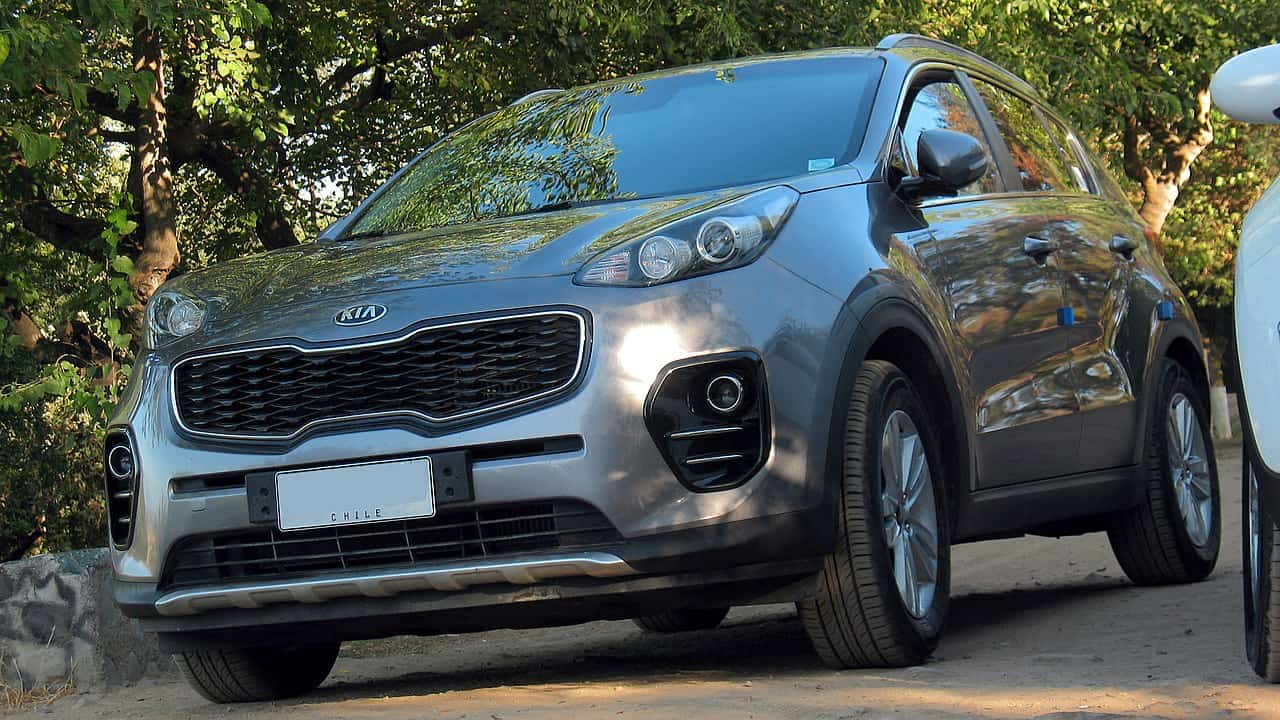
Earning another set of “Great” scores from J.D. Power, the 2020 Kia Sportage continues its good streak. Better yet, only 79 NHTSA complaints were filed this year, a low enough number to indicate that most issues are more one-off than part of a larger, more problematic concern. Engine issues were at the top of the list, but it was not enough to distract from the benefits of this model year.
In 2020, you had more advanced safety features added, improvements to the infotainment system, and lane departure warning as standard. Even the all-wheel-drive system was far better than in previous years, which is excellent news for those in cold climates. Consumer Reports also noted that the Sportage felt much more sporty to drive than its closest competitors, like the Toyota Rav4 and the Volkswagen Tiguan.
Own: 2021
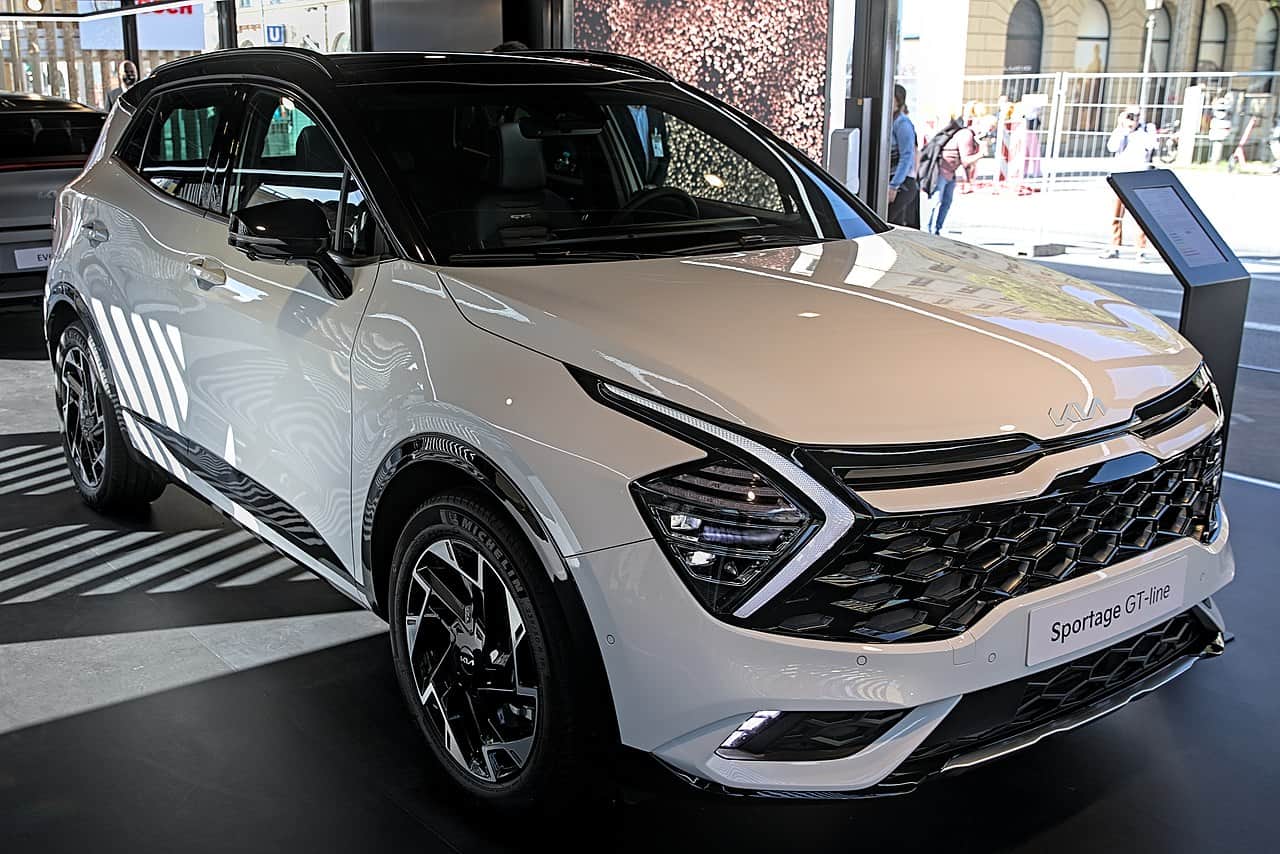
With the 2021 Kia Sportage about to come up as an end-of-lease period for many potential buyers, it’s important to know how well this model year performed. The good news is that with only 15 NHTSA complaints if you can pick up the 2021 Kia Sportage with low miles, you’re potentially getting a steal of a deal. With near-perfect safety scores according to both NHTSA and IIHS (Insurance Institute of Highway Safety), there is very little to complain about with the 2021 Sportage.
J.D. Power even ranked the Kia Sportage as its third-best recommendation in the compact SUV space. This places it above the Hyundai Tucson, Honda CR-V, and even the Chevrolet Equinox, all close competitors in vehicle size and price. Part of this praise is likely why Consumer Reports highlighted just how good the Kia Sportage feels to drive over the competition.
In 20 Years, I Haven’t Seen A Cash Back Card This Good
After two decades of reviewing financial products I haven’t seen anything like this. Credit card companies are at war, handing out free rewards and benefits to win the best customers.
A good cash back card can be worth thousands of dollars a year in free money, not to mention other perks like travel, insurance, and access to fancy lounges.
Our top pick today pays up to 5% cash back, a $200 bonus on top, and $0 annual fee. Click here to apply before they stop offering rewards this generous.
Flywheel Publishing has partnered with CardRatings for our coverage of credit card products. Flywheel Publishing and CardRatings may receive a commission from card issuers.
Thank you for reading! Have some feedback for us?
Contact the 24/7 Wall St. editorial team.




